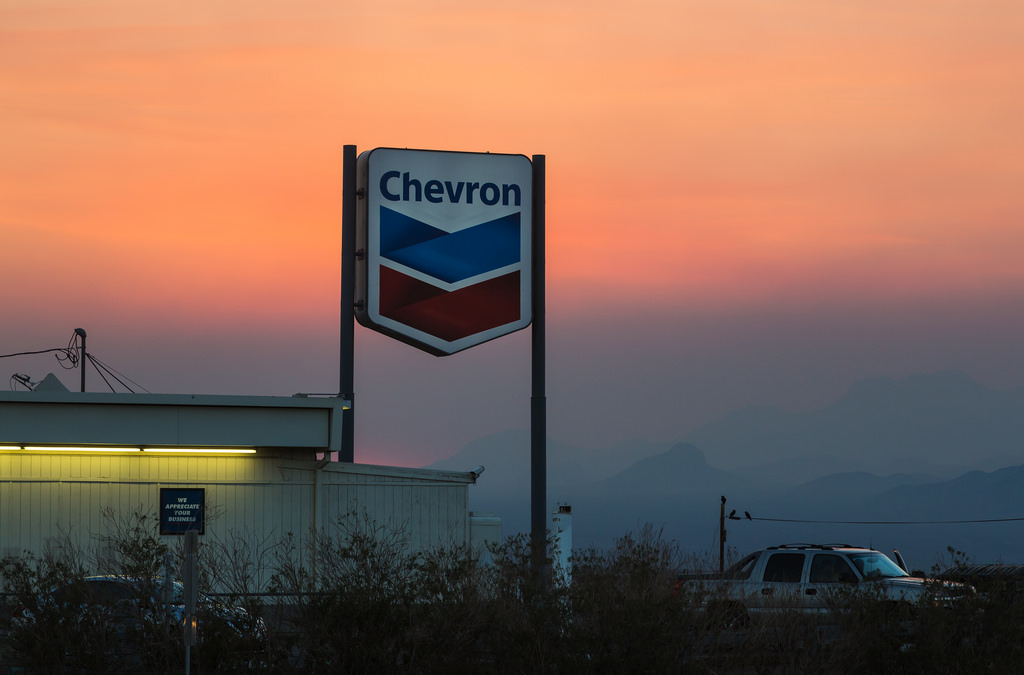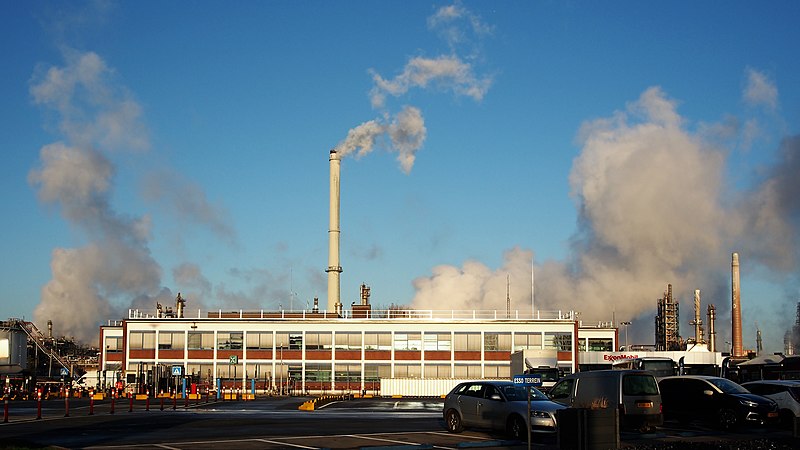Each month, Arnold & Porter and the Sabin Center for Climate Change Law collect and summarize developments in climate-related litigation, which we also add to our U.S. and non-U.S. climate litigation charts. If you know of any cases we have missed, please email us at columbiaclimate at gmail dot com.
Here are the latest additions to the Climate Case Chart
Update #75 (June 2, 2015)
FEATURED DECISION
Colorado Federal Court Held That Environmental Review for Mining Plan Modifications Must Consider Coal Combustion Impacts
The federal district court for the District of Colorado ruled that the environmental review for two mining plan modifications that changed the location and increased the amount of coal to be mined had not complied with the National Environmental Policy Act (NEPA). The court ruled that WildEarth Guardians had organizational standing to bring the action, and that the action was neither moot nor barred by the doctrines of laches or forfeiture. In particular, the court noted that the federal defendants, which included the United States Office of Surface Mining Reclamation and Enforcement (OSM) and the Secretary of the Interior, could not invoke laches when OSM had not complied with “its most basic NEPA duty of providing public notice.” On the merits, the court held that OSM’s consideration of direct and indirect air quality impacts was insufficient. The court said that a NEPA review should consider coal combustion impacts as indirect effects of the mining plan modifications and that uncertainty about the timing or rate of the coal combustion or the type of emissions controls that would be in place could not justify ignoring the combustion impacts. The court, however, declined to vacate the two mining plan modifications. At one of the mines, all of the federal coal covered by the modification had already been mined. At the other mine, the court found that vacatur was not warranted given potential hardship it could cause to mine employees and the power plant to which the mine supplied coal, and given that mining had occurred in the area since the 1970s, that its impacts had been studied over the years, that state agencies had considered the impacts of the mining plan modifications, and that OSM had changed its NEPA practices. WildEarth Guardians v. United States Office of Surface Mining Reclamation and Enforcement, No. 13-cv-00518 (D. Colo. order May 8, 2015): added to the “Stop Government Action/NEPA” slide.
DECISIONS AND SETTLEMENTS
After Corps Prepared New Environmental Report, Alaska Federal Court Upheld Issuance of Fill Permit in National Petroleum Reserve
The federal district court for the District of Alaska upheld the approval by the United States Army Corps of Engineers (Corps) of a permit to fill wetlands in the National Petroleum Reserve in Alaska for development of a drilling site. The Corps prepared a supplemental information report (SIR) after the court held in 2014 that the Corps had not provided a reasoned explanation for its decision not to prepare a supplemental environmental impact statement (SEIS) to update a 2004 EIS. Pursuant to an agreement between the parties and an order of the court, the SIR included a discussion of whether new information about climate change necessitated preparation of an SEIS. The Corps considered both the impact of climate change on the project and the project’s impacts on climate change. The court agreed with plaintiffs that the Corps had conducted “only a minimalist review” of the impacts of climate change. Nevertheless, the court found that this assessment was adequate given the absence of detailed instructions from the court regarding the analysis the Corps should have performed and given that the plaintiffs had not identified specific climate change information the Corps should have considered. The court also found that the Corps’ determinations that other new information and changes to the project did not require an SEIS were not arbitrary and capricious, and that the Corps had an adequate basis for its determination that the project was the Least Environmentally Damaging Practicable Alternative as required under Section 404 of the Clean Water Act. Judgment was entered for the defendants on May 29, 2015. Kunaknana v. United States Army Corps of Engineers, No. 3:13-cv-00044 (D. Alaska May 26, 2015): added to the “Stop Government Action/NEPA” slide.
Oregon Circuit Court Said Public Trust Doctrine Did Not Compel State to Address Climate Change
In an action in which Oregon children and their families argued that the public trust doctrine compelled the State to take action to reduce carbon dioxide emissions, an Oregon Circuit Court ruled that the State’s public trust doctrine applied only to submerged and submersible lands, and not to other resources such as the atmosphere, waters of the State, beaches and shorelands, and fish and wildlife. With respect to the atmosphere, the court questioned “whether the atmosphere is a ‘natural resource’ at all.” The court further declared that the State did not have a fiduciary obligation to protect submerged and submersible lands from the impacts of climate change, concluding that the public trust doctrine merely restricted the ability of the State to entirely alienate such lands. The court also said that granting the relief sought by plaintiffs could violate the separation of powers doctrine, and that the court would not have had sufficient information before it to make a determination as to appropriate concentrations of carbon dioxide in the atmosphere. The plaintiffs have indicated that they will appeal the decision. An Oregon appellate court previously reversed the circuit court’s determination that it did not have jurisdiction over the lawsuit. Chernaik v. Brown, No. 16-11-09273 (Or. Cir. Ct. opinion and order May 11, 2015): added to the “Common Law Claims” slide.
D.C. Circuit Denied Rehearing in Challenges to EPA Implementation of Greenhouse Gas Requirements
The D.C. Circuit issued orders denying petitions for rehearing of its 2013 decision that dismissed challenges by Texas, Wyoming, and industry groups to EPA rules that imposed federal permitting requirements for greenhouse gases. The petitioners had argued that rehearing was necessary because the Supreme Court’s decision in Utility Air Regulatory Group v. EPA negated the D.C. Circuit’s dismissal of the proceedings on standing grounds. The D.C. Circuit’s 2013 ruling was grounded in its interpretation of the Clean Air Act’s Prevention of Significant Deterioration (PSD) permitting requirements as “self-executing” for stationary sources that emitted greenhouse gases—the D.C. Circuit therefore reasoned that petitioners’ injuries were caused by the statute itself and not by EPA’s actions. Petitioners argued in their petitions for rehearing that since the Supreme Court expressly rejected this interpretation, the D.C. Circuit’s ruling should be vacated and the petitions for review should be granted or the matter reheard. The denial of the petitions for rehearing came after the D.C. Circuit ordered EPA in April 2015 to rescind regulations that required PSD and Title V permits solely based on a source’s greenhouse gas emissions. Texas v. EPA, Nos. 10-1425 et al., Utility Air Regulatory Group v. EPA, Nos. 11-1037 et al. (D.C. Cir. order denying panel rehearing and order denying rehearing en banc May 4, 2015): added to the “Challenges to Federal Action” slide.
EPA to Respond by July 31 to Sierra Club Request for Objection to Air Permit for New Hampshire Coal-Fired Power Plant
Under the terms of a proposed consent decree filed in the federal district court for the District of Columbia, the United States Environmental Protection Agency (EPA) would have to respond by July 31, 2015 to a Sierra Club petition submitted in July 2014 that asked the agency to object to an air pollution operating permit issued for a coal-fired power plant in Portsmouth, New Hampshire. Sierra Club filed a lawsuit in December 2014 to compel EPA to respond to the petition. Sierra Club v. McCarthy, No. 4:14-cv-02149 (D.D.C., proposed consent decree filed May 1, 2015): added to the “Challenges to Coal-Fired Power Plants” slide.
Court of Federal Claims Said Hurricane Katrina Flooding Constituted Temporary Taking
A United States Court of Federal Claims held that the federal government was liable for a temporary taking caused by certain flooding during Hurricane Katrina and subsequent storms. The court found that the plaintiffs, who were property owners in St. Bernard Parish or the Lower Ninth Ward of the City of New Orleans, had established that the flooding of their properties was caused by the U.S. Army Corps of Engineers’ construction, expansions, operation, and failure to maintain the Mississippi River-Gulf Outlet (MR-GO), a 76-mile-long navigational channel. One federal government argument rejected by the court was that the flooding was caused, not by MR-GO, but by subsidence, sea level rise, and land loss. With respect to this issue, the court said: “Although subsidence, sea level rise, and land loss took their toll on the region, the evidence in this case demonstrates that the MR-GO had the principal causal role in creating the environmental damage ….” Sabin Center Fellow Jennifer Klein wrote about this case in May. St. Bernard Parish Government v. United States, No. 1:05-cv-01119 (Fed. Cl. May 1, 2015): added to the “Adaptation” slide.
Author of 2006 Report to Congress on Climate Change Withdraws Lawsuit Against Climate Science Blogger
In March 2014, Edward Wegman, the lead author of a 2006 report to Congress that purported to undermine the scientific basis for climate change, filed a lawsuit against John Mashey, a computer scientist who studies “climate science & anti-science and energy issues” and who has written about these issues in various venues, including DeSmogBlog, Skeptical Inquirer, and Deep Climate. Wegman alleged that Mashey’s writings about the 2006 report—in which Mashey asserted numerous problems with the report, including a significant amount of plagiarized text—caused Wegman to be investigated by his university and to lose his position as an editor of a journal. Wegman asserted claims of tortious interference with contract, common law conspiracy, and statutory conspiracy. The action was originally filed in Virginia state court but was removed to the federal district court for the Eastern District of Virginia. On April 30, 2015, Wegman filed a notice of voluntary dismissal. A parallel action asserting the same claims was filed by another author of the 2006 report, Yasmin Said, and was also withdrawn. Wegman v. Mashey, No. 1:15-cv-00486 (E.D. Va. notice of voluntary dismissal Apr. 30, 2015): added to the “Climate Protesters and Scientists” slide.
EAB Upheld FutureGen Carbon Sequestration Permits
EPA’s Environmental Appeals Board (EAB) denied review of four underground injection control permits for the injection and storage of carbon dioxide. The permits were issued in conjunction with plans for the now-suspended FutureGen carbon capture and storage project in Illinois. The EAB concluded that the petitioners, who owned property in the vicinity of the project, had identified no clear error of fact or law, abuse of discretion, or matter of policy that warranted EAB review. In re FutureGen Industrial Alliance, Inc., Appeal Nos. UIC 14-68; UIC 14-69; UIC 14-70; UIC 14-71 (EAB Apr. 28, 2015): added to the “Challenges to Coal-Fired Power Plants” slide.
NEW CASES, MOTIONS, AND NOTICES
Rehearing Petition Sought Vacatur of EPA’s BACT Rules for Greenhouse Gas Emissions from Stationary Sources
After the D.C. Circuit determined in April 2015 that the Supreme Court’s decision in Utility Air Regulatory Group v. EPA did not require vacating EPA’s permitting regulations for greenhouse gas emissions from stationary sources, petitioners asked for panel rehearing and rehearing en banc. The petitioners contended that the D.C. Circuit should have vacated EPA’s regulations requiring sources subject to the Prevention of Significant Deterioration permit program solely due to their emissions of other pollutants to use best available control technology (BACT) to reduce greenhouse gas emissions. The petitioners argued that the Supreme Court in UARG v. EPA had held that these BACT provisions were defective because, among other reasons, they did not establish a de minimis level of greenhouse gas emissions below which BACT would not be required. It therefore was inappropriate, the petitioners said, for the D.C. Circuit to allow EPA “merely to ‘consider,’ per its own ruminations, whenever it feels so inclined,” the extent to which UARG v. EPA required revisions to the BACT provisions. The petitioners also contended that the D.C. Circuit’s amended judgment was at odds with its own precedent concerning when remand without vacatur is appropriate. Coalition for Responsible Regulation v. EPA, Nos. 09-1322 et al.; Coalition for Responsible Regulation v. EPA, Nos. 10-1073 et al.; Coalition for Responsible Regulation v. EPA, Nos. 10-1092 et al.; American Chemistry Council v. EPA, Nos. 10-1167 et al. (D.C. Cir., petition for rehearing May 26, 2015): added to the “Challenges to Federal Action” slide.
Sierra Club Filed Challenge to FERC Approvals of Corpus Christi LNG Facilities
On May 11, 2015, Sierra Club filed a petition for review in the D.C. Circuit Court of Appeals seeking to overturn the Federal Energy Regulatory Commission’s (FERC’s) approval of liquefied natural gas (LNG) export and import facilities on Corpus Christi Bay in Texas, as well as a 23-mile-long pipeline and two compressor stations. Five days earlier, FERC had denied Sierra Club’s request for a rehearing of its order authorizing these projects. Sierra Club has asserted various omissions in FERC’s environmental review of the project, including failure to consider both the impacts of induced natural gas production and the potential impacts on U.S. electric sector air emissions due to power generators shifting from gas to coal as result of export-driven rises in natural gas prices. Sierra Club has also argued that FERC failed to take a hard look at the impacts of the project’s emissions of greenhouse gases. In its order denying a rehearing, FERC said that the National Environmental Policy Act did not require it to analyze the impacts of additional natural gas production as an indirect effect of the projects or in its analysis of the projects’ cumulative effects. FERC also said that Sierra Club had not produced any evidence to support the theory that the project would result in a shift to domestic coal use for electricity production and indicated that reliance on such a theory would require FERC “to engage in speculation upon speculation.” FERC also found that its analysis of impacts on greenhouse gas emissions and climate change was consistent with the Council on Environmental Quality’s revised draft guidance and was otherwise adequate. Sierra Club v. Federal Energy Regulatory Commission, No. 15-1133 (D.C. Cir., filed May 11, 2015); In re Corpus Christi Liquefaction, LLC, Nos. CP12-507-001, CP12-508-001 (FERC, order denying reh’g May 6, 2015): added to the “Stop Government Action/NEPA” slide.
Petition for Rehearing Asked D.C. Circuit to Look Again at EPA Rule That Deferred Regulation of Biogenic Carbon Dioxide
Industry groups filed a petition for rehearing of the D.C. Circuit Court of Appeals decision in 2013 that vacated an EPA rule that deferred regulation of “biogenic” carbon dioxide from non-fossil fuel carbon dioxide sources such as ethanol. This litigation had been on hold while other proceedings challenging EPA’s regulatory regime for greenhouse gas emissions made their way to the Supreme Court, culminating in the Supreme Court’s decision in Utility Air Regulatory Group v. EPA in June 2014 and eventually in the D.C. Circuit’s amended judgment in April 2015. The industry groups argued in their petition for rehearing that the D.C. Circuit needed to consider UARG v. EPA’s impact on the rule deferring regulation of biogenic carbon dioxide, given that the “Deferral Rule” amended the “Tailoring Rule,” which was partially invalidated by UARG v. EPA. The industry groups also contended that the D.C. Circuit should have considered remand without vacatur as an appropriate remedy and that the D.C. Circuit had erred in finding that the record did not support the Deferral Rule. Center for Biological Diversity v. EPA, No. 11-1101 (D.C. Cir., petition for rehearing May 11, 2015): added to the “Force Government to Act/Clean Air Act” slide.
Environmental Groups Challenged FERC Approval of Maryland LNG Project After FERC Denied Rehearing
On May 6, 2015, environmental groups filed a petition for review of FERC’s authorization of the construction and operation by Dominion Cove Point LNG, LP, of liquefaction and terminal facilities for the export of liquefied natural gas (LNG) in Cove Point, Maryland, and associated pipeline facilities to transport natural gas to the LNG terminal facilities. On May 4, 2015, FERC had denied several requests for rehearing. In denying the rehearing requests, FERC concluded, among other things, that it was not required to consider the impacts of production activities in the Marcellus Shale region because they were not sufficiently causally related to constitute indirect effects of the Cove Point project. FERC also affirmed its finding “that impacts from additional shale gas development supported by LNG export projects are not reasonably foreseeable.” FERC also stood by its consideration of the project’s direct greenhouse gas emissions and said that it was not required to consider air emissions and climate change impacts of such emissions from the transportation and ultimate consumption of gas exported from the Cove Point project. FERC rejected the contention that it had not adequately considered potential climate change impacts on the project, including impacts due to severe winds and sea level rise. EarthReports, Inc. (dba Patuxent Riverkeeper) v. Federal Energy Regulatory Commission, No. 15-1127 (D.C. Cir., filed May 7, 2015); In re Dominion Cove Point LNG, LP, No. CP13-113-000 (FERC, order denying rehearing and stay May 4, 2015): added to the “Stop Government Action/NEPA” slide.
Colorado Federal Court Stays Challenge to Environmental Review for Coal Lease After Parties Indicate They May Settle
In a lawsuit challenging the environmental review for a coal lease where the mine was the sole source of coal for a power plant in Utah, the court granted a joint motion for a stay after the parties indicated that they believed they could reach a settlement. The lawsuit primarily concerns local air impacts. WildEarth Guardians v. United States Bureau of Land Management, No. 1:14-cv-01452 (D. Colo. joint motion to stay briefing schedule granted Apr. 6, 2015): added to the “Stop Government Action/NEPA” slide.




